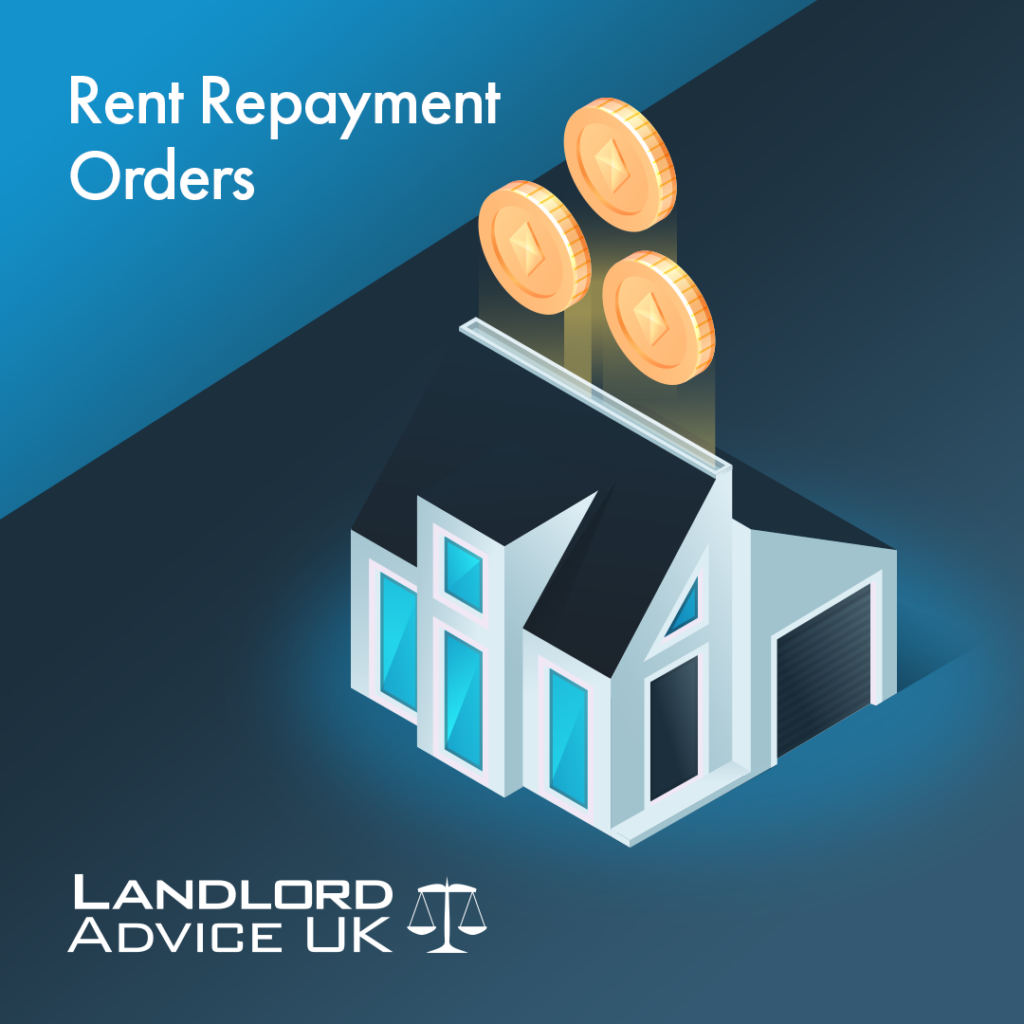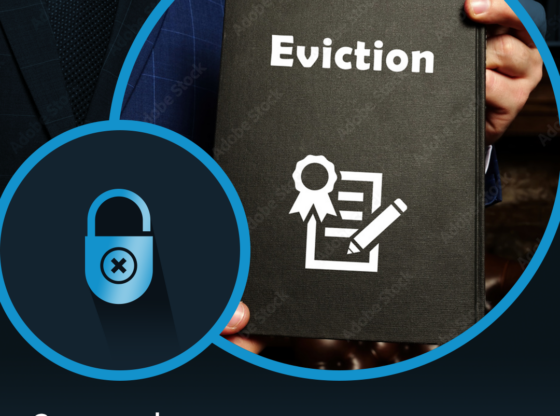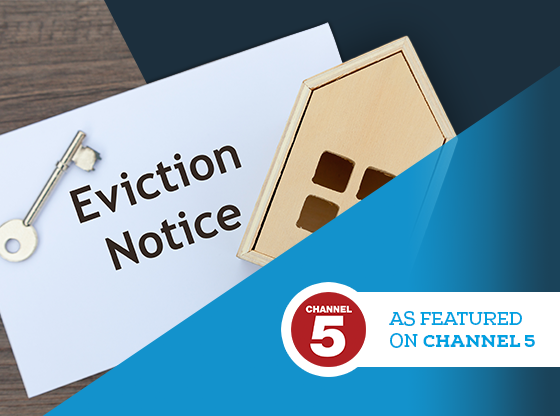Defending a Rent Repayment Order Application
A rent repayment order (“RRO”) is an order made by a Tribunal requiring the landlord or agent to repay rent (including housing benefit or housing element of universal credit) where the landlord or agent has committed a particular offence, which are listed below.
It is not necessary that the landlord or agent has actually been convicted of the offence, but in order to grant an RRO, a Tribunal must be satisfied beyond reasonable doubt (the criminal standard of proof) that one of these offences has been committed.
An RRO can require the repayment of a sum of up to a maximum of 12 months’ rent.
Offences that can result in a rent repayment order
With effect from 6 April 2017, the relevant offences are:
- using or threatening violence for securing entry into premises, under s.6 Criminal Law Act 1977
- illegal eviction or harassment, under s.1 Protection from Eviction Act 1977
- failure to comply with improvement notice, under s.30 Housing Act 2004
- failure to comply with prohibition order, under s.32 Housing Act 2004
- (from 6 April 2018) breach of banning order, under s.21 Housing and Planning Act 2016
- having control of, or managing, an unlicensed property, under s.95 Housing Act 2004
- having control of, or managing, an unlicensed house in multiple occupation (HMO), under s.72 Housing Act 2004
A HMO licence cannot be transferred to another person. This means that when a landlord acquires a tenanted property which already has a licence, they cannot rely on the existing licence, but must apply to the local authority for their own. The new landlord would commit an offence if they do not acquire their own HMO license from the local authority (see s.68(6) Housing Act 2004 and Taylor v Mina An Ltd [2019] UKUT 249 (LC)).
Where the tenant’s immediate landlord is an intermediate landlord, an RRO can only be made against that landlord. It cannot be made against the superior landlord (see Rakusen v Jepson & Ors, Safer Renting Intervenor [2021] EWCA Civ 1150). A RRO cannot be made against the director of a company landlord (see Kaszowska v White [2022] UKUT 11 (LC)).
Applications for a rent repayment order
An application for an RRO is made to the First-tier Tribunal (Property Chamber), and can be made by an occupier (e.g. a tenant) or a local housing authority.
In cases where there is an ambiguity about who the landlord is, whether the owner of the property or an agent, such as in the case of rent to rent agreements, the application for an RRO can be made against either of them or both of them jointly (see Goldsbrough & Anor v CA Property Management Ltd & Ors [2019] UKUT 311 (LC)).
Legal costs
Costs in the First-tier Tribunal and the Upper Tribunal are awarded at the discretion of the Tribunal.
The Tribunal does not usually award either the Applicant or the Respondent their legal costs unless the application has been made unreasonably/ The Tribunal can also make a costs order if there has been misconduct by one of the parties, and the Tribunal decides it is appropriate to make a costs order.
Tenant
A tenant can apply for an RRO to recover rent they have paid to the landlord or agent if the offence:
- relates to housing that they were occupying under a letting agreement at the time of the offence, and
- was committed in the period of 12 months ending with the day on which the application is made
A tenant (or licensee) can apply to recover any period of rent during their occupancy, up to the maximum of 12 months, so long as they apply within the limit of 12 months from the date of the offence.
Local authorities are empowered to help an occupier to apply for an RRO, for example by conducting proceedings on the occupier’s behalf or by providing advice on how to do it.
Local authorities
A local housing authority can apply for an RRO to recover housing benefit or housing costs element of universal credit paid (to any person) if the:
- offence relates to housing in the authority’s area, and
- authority has first served a notice of intended proceedings on the landlord or agent.
A notice of intended proceedings must:
- inform the landlord/agent that the authority intends to apply for an RRO and set out the reasons
- state the amount that the authority seeks to recover
- invite the landlord/agent to make representations within a specified period (of not less than 28 days), and
- relate to a period of maximum 12 months of the landlord/agent committing the offence
The amount the authority seeks to recover cannot exceed the amount of housing benefit or universal credit paid (directly or indirectly) to the landlord/agent in the relevant period.
The authority can apply for an RRO after the expiry of the notice of intended proceedings and after it has considered any representations made by the landlord or agent.
Statutory guidance
In deciding whether to apply for an RRO local authorities must have regard to the statutory guidance on Rent repayment orders under the Housing and Planning Act 2016 issued by the Secretary of State.
How a rent repayment order is made
The First-tier Tribunal must be satisfied beyond reasonable doubt that the landlord has committed the offence. It is not necessary that the landlord or agent has been convicted of the offence.
The Tribunal will give directions for the applicant and respondent to submit their evidence, the applicant will usually be given the opportunity to submit a response to the respondent’s evidence.
Once both parties have submitted their evidence, a hearing will usually take place before three people, a Judge and two members of the Tribunal who will assist the Judge.
The Tribunal should hold a hearing of the RRO applications if the facts are disputed (see Raza v Bradford Metropolitan District Council [2021] UKUT 39 (LC))
An appeal against an RRO can be made to the Upper Tribunal if the decision of the First-Tribunal was thought to be wrong. There must be a legal basis (grounds) to issue an appeal.
Rent repayment order amount
In deciding the amount, the First-tier Tribunal must take into account:
- the conduct of the landlord
- the financial circumstances of the landlord, and
- whether or not the landlord has actually been convicted of a relevant offence or has received a financial penalty
In addition, where the application is made by the occupier the Tribunal must:
- take into account the conduct of the occupier
- deduct any housing benefit or universal credit paid in respect of rent
The First-tier Tribunal should take into account the seriousness of the offence committed and any other factors that appear to be relevant (see Williams v Parmar & Ors [2021] UKUT 244 (LC)).
In one case, the Upper Tribunal found that the First-tier Tribunal had not sufficiently considered evidence suggesting that the landlord was suffering from serious mental health conditions (see AA v Rodriguez & Ors [2021] UKUT 269 (LC)).
Full rent paid for a period of 12 months’ is the maximum that can be repaid under the RRO, but the Tribunal does not have to award it in all cases. The Tribunal can exercise discretion as to the RRO amount. The Upper Tribunal upheld the reduction in the RRO amount based on the occupier’s conduct where they were in rent arrears and obstructed inspections (see Awad v Hooley [2021] UKUT 55 (LC); Kowalek v Hassanein Ltd [2021] UKUT 143 (LC)).
In some cases the Tribunal’s discretion is limited to exceptional circumstances and the amount must be a maximum that the Tribunal has the power to order (see s.46 Housing and Planning Act 2016, Ball v Sefton Metropolitan Borough Council [2021] UKUT 42 (LC)).
An applicant cannot ask for separate RROs or receive more than 12 months’ rent even if a landlord commits several offences. 12 months’ rent is the maximum which a landlord could be ordered to repay irrespective of the number, timing or duration of the offences (see Ficcara & Ors v James [2021] UKUT 38 (LC)).
The law does not restrict the amount of the RRO in favour of the tenant to the landlord’s profit over the relevant period, that is to rent minus expenses. The Upper Tribunal held that while the landlord’s payments for utilities used by the tenant may be deducted from the amount of rent, there is no automatic right to deduct all expenses, for example payments for maintenance, repairs or a mortgage (see ss. 43, 44 Housing and Planning Act 2016; Vadamalayan v Stewart and others [2020] UKUT 0183 (LC); Chan v Bilkhu & Anor [2020] UKUT 289 (LC)).
The amount paid as tenancy deposit cannot be included in an RRO while it is still lawfully held as security for the performance of the tenants’ obligations.
An RRO is enforceable as if it were a debt in the county court, it therefore can be enforced by various methods, from bailiff enforcement to a charging order on property.
Defence
There are various defences that can be made in response to an application for a rent repayment order. In some instances, it may be that it is denied the alleged offence was committed. It could also be that the applicant has not made the application in time, or that there has been poor conduct of the tenant which mitigates the landlords position.
Applicants will often seek to claim the maximum rent repayment that can be claimed, but this does not necessarily mean that the applicant would be entitled to the maximum amount that can be claimed; this where a partial defence may be available.
A landlord or agent who an application for an RRO made against them may have a defence. A defence could be a complete defence, or a partial defence.
Landlord Advice UK have assisted hundreds of landlords and agents in relation to RRO’s, from preparation of a defence, to providing representation at the Tribunal..
If you have received an application for an RRO, you should seek advice from an expert as soon as possible. You contact us by e-mail on [email protected] in relation to RRO’s or telephone on 020 3903 2000.











